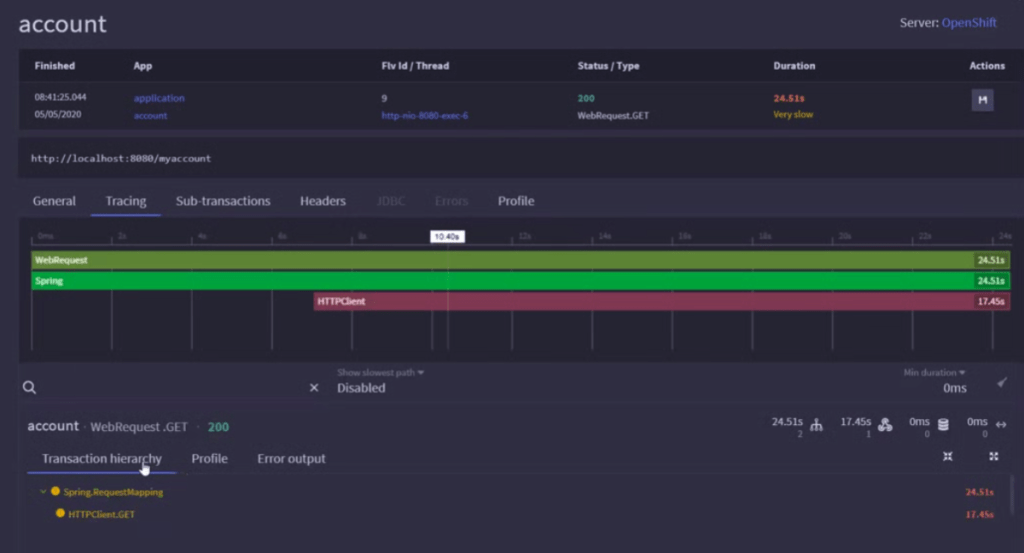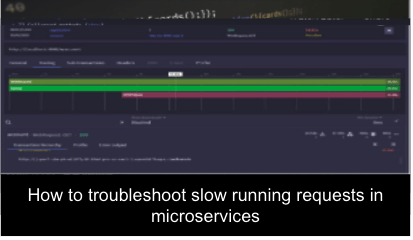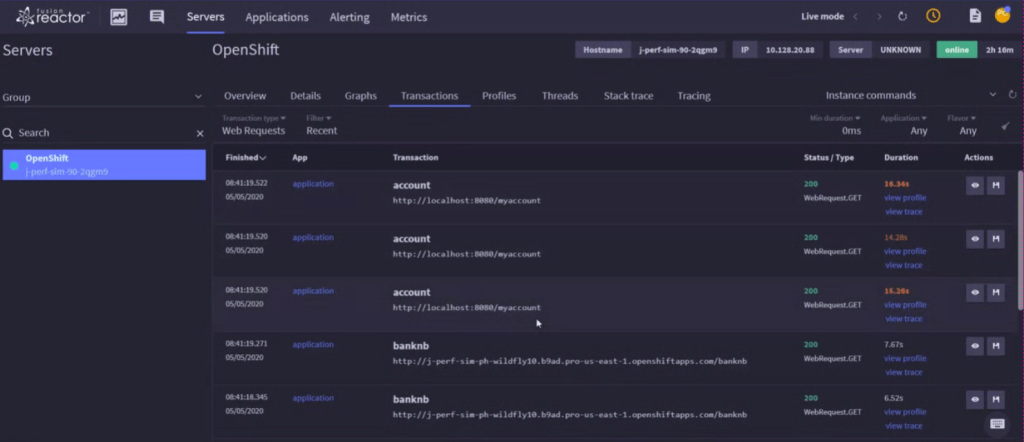How to troubleshoot slow running requests in microservices
we are running 3 microservices and for this use case, we have an issue with a long-running request. We will then take a look at FusionReactor and see how it picks up this issue. For the test environment, we are using Redhat Microservices, SpringBoot, and Eclipse in conjunction with FusionReactor.
- Cloud-Native Platform: RedHat OpenShift Online
- Java version: OpenJDK
- Application development platform: Spring Boot
- IDE: Eclipse
- Monitoring tool: FusionReactor Ultimate Cloud
Java, Spring Boot and Red Hat OpenShift troubleshooting with FusionReactor
Video by Pierre-Hugues Charbonneau
How to detect your microservices
Microservices are automatically detected when you use FusionReactor Cloud. FusionReactor tells us that one of our requests had taken over 24 seconds, clearly, we need to understand why it took so long. FusionReactor gives us 2 options:
Use traces to troubleshoot microservices
FusionReactor is an ideal tool to troubleshoot slow-running requests in microservices. It stores 90 days of historic data, so if a call crashes your pod then you can go back in time to see why this happened.

Troubleshoot microservices using a profiler
A profiler will tell you what actually happened in the code. Consequently, it will tell you exactly where time was spent. The code gives us the rest template where we can see that a great deal of time was spent on the socket rewrite. This is because it is waiting for a remote service; so we have got to the route cause of the issue.
How to troubleshoot slow running requests in microservices
With the increased adoption of microservices, complex typographies are becoming increasingly the norm. FusionReactor allows you to see the transaction, the trace, and even the actual code giving you a complete view of the issue.












